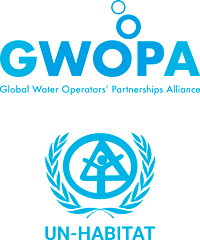Operators have varied and complementary motivations for taking part in WOPs however one of the main incentives for the supported operators, or ‘mentee’, is to acquire high-calibre skills and capacity. The partnership provides them with exposure to these skills at a low cost and can help improve their performance and gain comparative experience for their staff. Operators that have received support through WOPs have said the process supported positive change within their utility, developed individual staff capacity and increased their efficiency.
The key incentives for the supporting or ‘mentor’ operator is to build the experience of their staff while making their jobs more interesting, gaining exposure and enjoying global visibility. Experienced mentors say that WOPs have a motivational effect on their team and allow employees to develop professionally.
Donors and development banks support WOPs through GWOPA, regional WOPs platforms, or directly. In some cases, they support the approach as part of wider efforts to increase access to quality water and sanitation services, in others, the goal is to prepare for or accompany large-scale investment.
Compared to other forms of capacity building activities or consultancies, the cost of WOPs is generally low, as no partner makes a profit from the arrangement. There is no set cost for WOPs as each partnership is unique, however staff time, travel and accommodation for technical visits are the primary costs associated with WOPs. A WOP with two technical visits and staff time from both operators on two improvement tracks per year, can costs under 50,000 USD. In many cases, operators offer in-kind contributions such as staff time spent on the WOP, although some operate on a not-for-loss basis.
